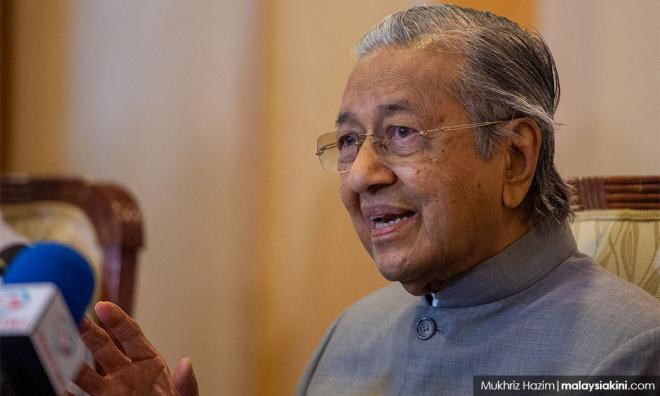
Dr Mahathir Mohamad said forming his new party Pejuang was necessary, as the country needs people who can come up with solutions to help Malays, whom he described as "economically-backwards".
The pro-tem Pejuang chairperson also warned that wealth disparity, mixed with an ethnic factor, could lead to racial conflict.
However, the accuracy of the former prime minister's assessment is in question, as an analysis of government data on income by race indicates that while some 932 thousand bumiputera households were earning less than RM3,000 a month, almost as many bumiputera households were earning more than RM10,000 a month.
Speaking at a press conference in Putrajaya, Mahathir spent almost an hour justifying the setting up of Pejuang before taking questions.
Besides fighting corruption, Umno, and Bersatu, one of the repeated reasons was that Malays needed champions who understood what they were going through.
"Malays have more problems compared to other races. A solution that applies to all races can't be applied to Malays.
"We are not fighting non-Malays, but problems faced by Malays can only be solved by Malays," he added.
Mahathir said one of the key problems was that Malays were still lagging behind economically.
"Malays are economically backwards, we have to accept that," he said, adding that businesspeople like Syed Mokhtar Albukhary and SM Nasimuddin SM Amin (Naza) were among the few who benefitted from the New Economic Policy.
Mahathir added that Malays were often complacent with their lot in life economically.
However, he also warned that wealth inequality could lead to racial tensions.
Citing the May 13, 1969 riots as an example, he said: "Malays thought they can go into the city, burn houses and burn motorcars because they belong to the Chinese."
However, the former premier said Malays can't do that now because they also own properties and cars in urban areas.
"So we want to ensure that (racial wealth) disparity is less, which is why we formed a Malay party, to help Malays overcome their weaknesses," Mahathir said.
Last month, The Edge analysed the government's 2018 household income survey and estimated that 932,600 or 71.6 percent of the 1.3 million households that earn less than RM3,000 a month last year were bumiputera.
However, 53.5 percent or 918,400 households that earned at least RM10,000 a month were also bumiputera, more than Chinese (38.2 percent), Indians (8.4 percent), and others (0.48 percent).
Meanwhile, of households that earned more than RM15,000 a month, 345,600 households or 47.5 percent were bumiputera, compared to Chinese (43.5 percent), and Indians (nine percent).
As for the 2.5 million households earning between RM5,000 and RM9,999, bumiputera stands at 66 percent.
Mahathir said that pro-Malay policies had contributed to better education levels among the community, adding that now about 40 percent of doctors were Malays.
However, he also lamented that Malays appear to have normalised corruption and said there was a need to restore a sense of shame in that aspect.
He said Pejuang will ensure that its members did not join the party simply to become election candidates or to become ministers. - Mkini


No comments:
Post a Comment
Note: Only a member of this blog may post a comment.